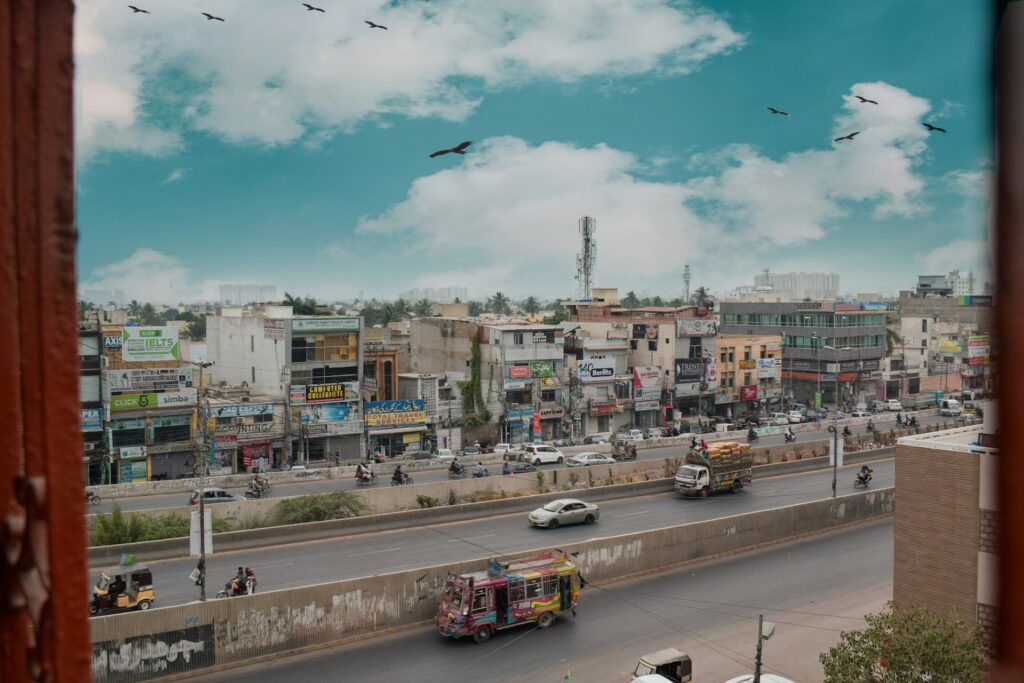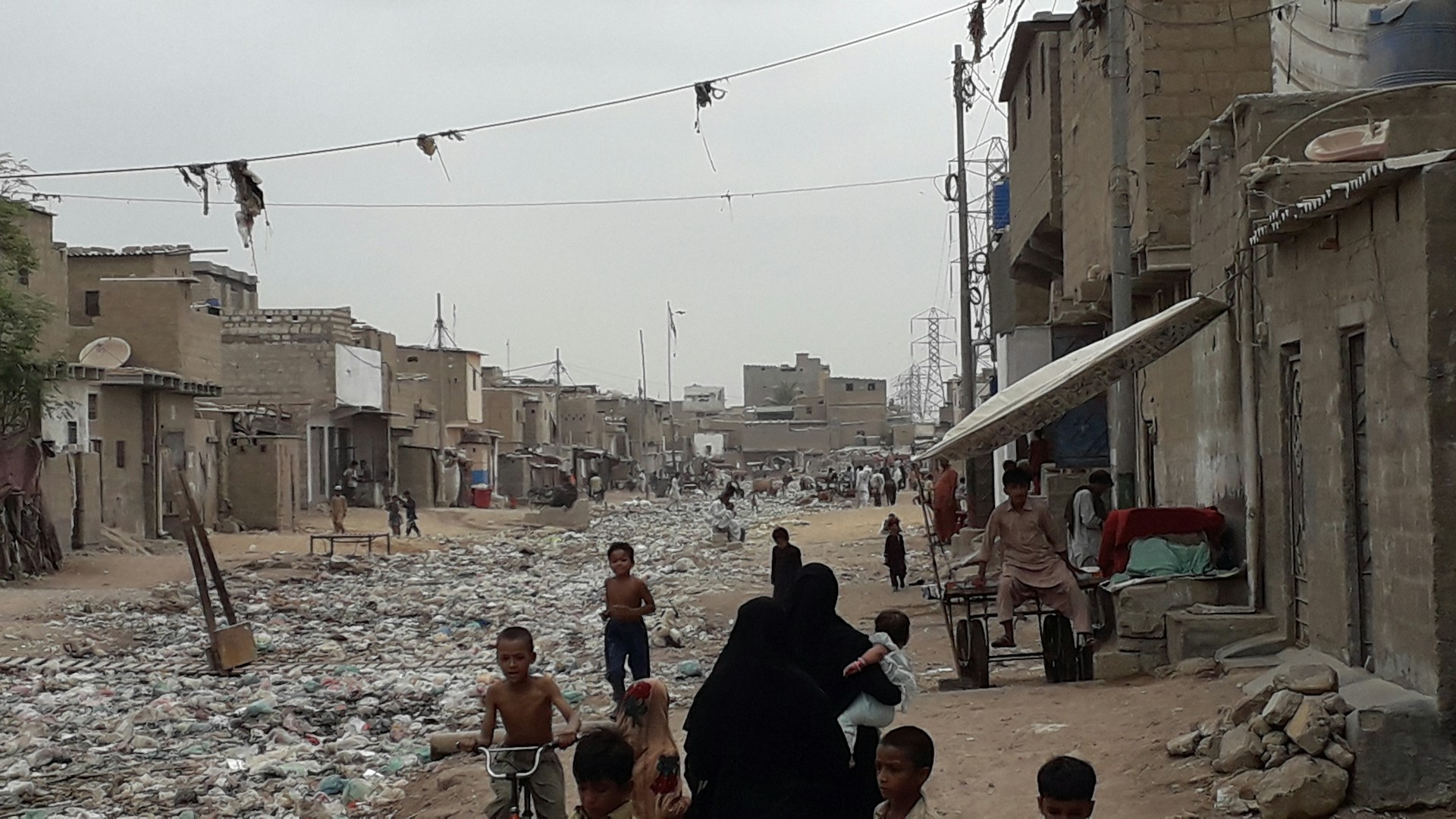Orangi Town Slum – A Complex Reality
Orangi Town is at the outskirts of Karachi Pakistan and is one of the biggest slum areas in Asia.
It is home to more than a million people, thus represents challenges and coping strategies of most informal urban centers.
Contained in this blog are the socio economic profile of Orangi Town, the developmental issues and the efforts being taken, and the prospects for the area.
The Origins of Orangi Town
The background of Orangi Town can be described as the necessity of people migration from countryside to Karachi due to the employment opportunities since the late 1980s.
Originally a piece of land earmarked for agrarian activities; the area became an urban growth corridor with little physical planning and development.
People built dwelling facilities with lack of social amenities including water, hygiene, and electricity.
Subsequently there were more people the population had increased, people that lived in cities and there were new problems of poverty.
No adequate housing and installations led to the formation of the Orangi Town slum; detached dwelling houses with dark narrow lanes, over populated, inadequate supply of water and drainage system.
Orangi Town slum has almost become an icon of the difficulties people experience in designed cities like Pakistan.
Socio-Economic Challenges of Orangi Town Slum
Different social economic activities are evident in Orangi Town slum and they come with numerous problems associated with them, making Orangi town the largest slum in the world.
High joblessness rate and low wage employment are rife especially since most inhabitants participate in the sectors that offer insecure and low quality employment.
This paper establishes the argument that the lack of quality education makes it almost impossible for these youths to break the cyclical poverty.
The highlight of health challenges experienced is also professionals.
Lack of adequate personal and environmental hygiene, coupled with a lack of sound health facilities increase the invisibility of communicable diseases.
People use irregular healthcare workers, therefore suffering from unequal health standards.
This is mainly due to the high population density that reinvents these challenges as breeding grounds for disease transmission.
However, these challenges the Orangi Town residents still exhibit a great deal of strength and determination.
Many start small businesses that are unique and provide services, which are relevant for the local population.
The females are particularly involved in poverty incomes that embrace the local economy through home-based businesses or community-based projects.

Community Initiatives and Empowerment
Under situation prevailing in Orangi Town slum, however, many organizations have come up at community level to address various problems.
The growing concerted movements includes Orangi Pilot Project (OPP) founded since early 1980s by Akhtar Hameed Khan.
The OPP concentrates on low cost sanitation, improving shelter facilities, and promoting education with community involvement.
The sanitation program has been the most effective, getting a large number of people to build underground sewers, thus significantly resolving the question of sanitation.
This continued effort improved the health of the people and at the same time made the residents stakeholders in the look and preservation of their surroundings.
The OPP also provides training, information and materials to communities so they can become owners of their development instead of only spectators or passive beneficiaries.
Other has been education related activities; there are also efforts being made by local implementers to open up schools and vocational training.
The purpose of such institutions is to ensure that the youth attain employable skills that will enable them to get decent jobs thus reducing youth unemployment and poverty levels.
The Way Forward: Challenges and Opportunities
Although Orangi Town slum is a progressive step ahead in overcoming its challenges there is still much more to be achieved.
Financial support from governments is generally still low and hence many activities are either voluntarism by NGOs and members of the public.
Therefore, there exists a need to alleviate the current general policies operated by the government and extend them to include the provision of housing needs, education and health services in the country.
Moreover, collusion of civil societies, government and private sectors, should encourage coordination hence increase on the efficiency of development resolutions.
Through infrastructure and public service, authorities are able to pull communities like Orangi Town up, and give its residents a chance to work. Orangi Town is equally vulnerable to climate change.
In the context of natural disasters, informal settlements are highly at risk hence public policies for new buildings require the integration of disaster risk reduction.
The following measures suggest that effective natural factors minimization will be essential for the community to adapt in the future.
Government Response: Policies and Initiatives
The government has not been very much responsive to their problems in equal measure.
Although the government has tried to respond to challenges of informality through processes such as land regularization, physical infrastructures, a majority of people in informal settlements still perceive that these interventions are inadequate.
This is mainly due to bureaucratic inertia and lack of coordination most of the time that frustrates proper implementation.
Nonetheless, policies intended at enhancing the quality of the urban space and the provision of housing might provide the framework for other sustainable solutions should efficiency be attained.
Conclusion
Orangi Town slum depicts all the challenges encountered in the lives of the Pakistani slum dwellers in urban areas.
Despite all the challenges it is overwhelming to see how much the community wants to change and to evolve.
The residents of Orangi Town have developed a number of schemes and NGOs and conducting collective actions to empower the citizens of the area for a better tomorrow.
But looking at the core issues at a systemic level and carry on developmental initiatives there is a ray of hope in developing orangi town as a harbour of hope that reflects the dreams of its inhabitants.
Also read: Pakistan – A Case Study of the Orangi Pilot Project, Karachi


Im thankful for the post.Much thanks again. Want more.
Thank you so much for the kind words! We are thrilled to hear that you enjoyed the blog article.